#AdvancedDrivingAids
Crash Avoidance Systems Underwhelm in Latest IIHS Study
The Insurance Institute for Highway Safety (IIHS) announced it has updated its vehicle-to-vehicle front crash prevention test to account for higher speeds. Originally, the group was only running tests for things like automatic emergency braking below 25 mph. Now, it’s targeting higher speeds and obstacles of varying sizes. But the results aren’t any better. Out of the 10 small crossovers tested, only a single model garnered a good rating.
Study: Collision Avoidance Technology Continues to Struggle
New research from the Insurance Institute for Highway Safety (IIHS) is claiming that forward-collision warning and automatic emergency braking are less successful at identifying trucks and motorcycles. In a study that comprised more than 160,000 accidents, the IIHS asserted that these systems prevented accidents with regular passenger vehicles 53 percent of the time. However, motorcycles only benefited 41 percent of the time and trucks 38 percent.
Honda Thinks Sensing Updates Will Halve Fatal Car Accidents By 2030
Honda is chanting the mantra in which the automotive industry magically delivers “a collision-free society” by leveraging the latest technology. Though this is hardly a novel marketing strategy, even for Honda, and one that predictably requires you to be patient because the company says it won’t be arriving as standard equipment until 2030.
IIHS Reports Pedestrian Detection Tech Rarely Works After Dark
The Insurance Institute for Highway Safety (IIHS) released a study on Tuesday that showcased just how badly advanced driving aids perform at night – specifically the automatic emergency braking systems that are linked to pedestrian detection.
This mimics earlier studies connected by the American Automobile Association (AAA), which frequently highlighted inconsistencies in driver assistance features in general. But nighttime was when things really started to come undone, with plenty of models failing to register that the simulated pedestrians used for testing were even there.
U.S. Drivers Seriously Starting to Sour on Autonomous Vehicles
Despite some of the world’s largest automakers promising commercially viable self-driving cars by 2020, autonomous vehicles have yet to manifest in any serious capacity. Granted, advanced driving aids have begun to usurp some amount of control from the driver. But they aren’t quite what was envisioned by the industry when everyone was a lot more optimistic about the technologies involved. This may also be true of consumers, who seem to have soured on the general premise of autonomous vehicles as they’ve started to learn all that might entail.
NHTSA Issues Initial Crash Report for Driver Assist Tech
In 2021, the National Highway Traffic Safety Administration (NHTSA) asked manufacturers to begin reporting vehicle accidents where Advanced Driver Assistance Systems (ADAS) and/or semi-autonomous driving aids were engaged. The agency was specifically interested in incidents where such systems were active at least 30 seconds prior to the crash, hoping it might shed some light as to the technologies at play while the industry continues to make it standard equipment.
Toyota to Study Advanced Driving System Interactions
Toyota will be launching nine new studies over the next five years to improve automotive safety, specifically in relation to how drivers engage with advanced driving aids equipped to modern vehicles. While the press release to a back seat to the automaker receiving an award for hiring female engineers and a $400,000 donation to the National Environmental Education Foundation, it’s likely to have broader ramifications on the industry.
Despite launching a bevy of new assistance features over the past few years, manufacturers haven’t actually spent all that much time studying how they might impact the act of driving. Testing usually focuses on ensuring the system functions, with independent research being left to examine how electronic helpers might influence behavior from behind the wheel. Unfortunately, preliminary studies have suggested that they lull motorists into a false sense of security, potentially offsetting any legitimate safety advantages the relevant technologies provide.
IIHS Study Suggests Buyers of Used Vehicles Learn Less About Their Car
The Insurance Institute for Highway Safety (IIHS) is claiming that individuals shopping for a secondhand automobile end up learning less about the modern features lurking within their automobiles. Considering salespeople have meetings about how best to hype the advanced driving aids in new models, this one really shouldn’t have required a survey for the IIHS to piece it together. But the outlet appears to be attempting to link this alleged lack of knowledge to make claims that it’ll somehow contribute to the probably of used vehicles being involved in a crash.
“Used car buyers were substantially less likely than new car buyers to know about the advanced driver assistance features present on their vehicles,” stated IIHS Senior Research Scientist Ian Reagan, the author of the study. “They were also less likely to be able to describe how those features work, and they had less trust in them. That could translate into less frequent use, causing crash reductions from these systems to wane.”
NHTSA Looking Into Tesla Vehicles Over 'Phantom Braking'
The National Highway Traffic Safety Administration (NHTSA) has announced it is investigating 416,000 Tesla vehicles after receiving 354 individual complaints of unexpected braking.
America’s largest purveyor of all-electric vehicles was forced to cancel its push of version 10.3 of its Full Self-Driving (FSD) beta software last fall after receiving reports that it was creating problems for some users. Drivers were complaining that the update had created instances of phantom braking after the vehicle issued false collision warnings. However, things only seemed to get worse as complaints to the NHTSA grew more frequent after bumping FSD back to an earlier version.
AAA Endorses Driver-Monitoring Camera Systems
Despite the automotive industry collectively promising to commence deliveries of self-driving cars in 2019, autonomous vehicles have remained test platforms for technologies that don’t yet seem ready for mass consumption. Public perception of the concept has also endured a few setbacks after several fatalities involving partially autonomous vehicles received national media attention. Today, the relevant technologies have failed to mature as swiftly as indicated and there are a whole host of legal ramifications to contend with.
Selling an automobile that’s marketed as being able to drive itself (even partially) are exposing automakers to a whole new demographic of lawsuits, so they’re desperate to install failsafe measures that places the onus of responsibility back onto the driver. Their current favorite is driver-monitoring cameras, which the American Automobile Association (AAA) likewise believes are probably the best solution. The outlet recently shared the results of a study attempting to determine which driver-engagement systems worked best and decided that in-cabin cameras were the leading choice in a batch of bad options.
IIHS Takes a Dump on Semi-Autonomous Cars, Then Impositions Drivers
The Insurance Institute for Highway Safety (IIHS) has said it is developing a new rating system to evaluate the existing safeguards found inside vehicles equipped with partial automation. Considering how commonplace advanced driving aids have become, you might be thinking this was long overdue. However, insurers were blindly praising advanced driving suites a few years ago — until they actually started testing them in earnest.
As luck would have it, there’s been mounting research supporting claims modern automotive tech encourages drivers to tune out and become distracted. While this wouldn’t be a big deal if the relevant features all functioned perfectly, the reality is that most are far less effective than advertised and practically all of them run the risk of being completely undone by inclement weather or poor lighting. Confusingly, the IIHS believes the best solution here is to make sure systems constantly monitor the driver to ensure the driver is constantly monitoring the system.
Report: Every New VW Golf Has Been Recalled in Germany
Volkswagen cannot seem to get away from software issues on its newer vehicles. This problem botched the launch of numerous models, including the Mk8 Golf, and seems to have returned now that every single example of the car is being recalled in Europe.
Drivers have been reporting gauge clusters displaying incorrect data, infotainment systems going offline, keys failing, and advanced driving aids that are perpetually on the fritz. The latter issue has also resulted in Golfs engaging in some erratic behavior, like erroneously triggering their own forward collision-warning sensors. This has left more than a few drivers complaining about cars stopping randomly in traffic as the automatic emergency braking system came alive.
Tesla Fixes Full Self-Driving Beta Software Issue
Following claims that Tesla’s “Full Self Driving” beta caused some vehicles to experience erroneous forward collision warnings and the automatic emergency braking system stopping cars for no discernable reason, the manufacturer has filed a probable fix with the National Highway Traffic Safety Administration (NHTSA).
The recall encompasses 11,700 equipped with FSD beta software version 10.3 that was released on October 23rd. While Tesla says that the vast majority of the vehicles selected to test the new code were already fixed via over-the-air updates, 0.2 percent of the whole still had not been issued a fix as of October 29th. Affected cars include every Tesla model ever made, provided it’s from the 2017 model year or later.
Tesla Removes Full Self Driving Beta Over 'Issues'
Tesla Inc. pulled its Full Self Driving (FSD) beta off the table over the weekend, with CEO Elon Musk stating that testers had been “seeing some issues with [version] 10.3.”
To remedy the issue, the company has reverted back to FSD 10.2 temporarily. Musk made the announcement over social media on Sunday morning. The following day, he had already promised that version 10.3.1 would be coming out to address problems encountered during the exceptionally short public testing phase.
“Please note, this is to be expected with beta software,” the CEO noted. “It is impossible to test all hardware configs in all conditions with internal QA, hence public beta.”
Rain or Shine: AAA Finds Out Advanced Driving Aids Still Suck
A new study from the American Automobile Association (AAA) has found that rain can severely impair advanced driver-assistance systems (ADAS). Similar to how highway traffic slows to a crawl when there’s a sudden deluge, modern safety equipment can have real trouble performing when a drizzle becomes a downpour.
On Thursday, the motor club organization released findings from closed-course testing that appeared to indicate some assistance suites had real trouble seeing through bad weather. AAA reported that 33 percent of test vehicles equipped with automatic emergency braking traveling collided with a stopped car when exposed to simulated rainfall at 35 mph. The numbers for automatic lane-keeping was worse, with 69 percent drifting outside the lines. Considering the number of times the people writing for this website have anecdotally criticized ADAS for misbehaving in snow, sleet, rain, fog, or just from an automobile being a little too dirty, it’s hard not to feel a little vindicated.



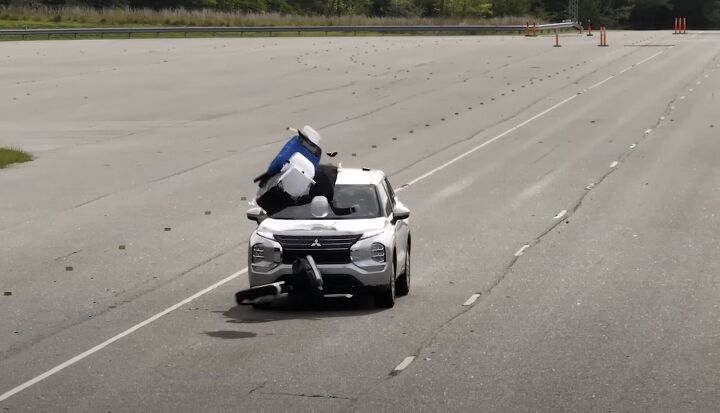
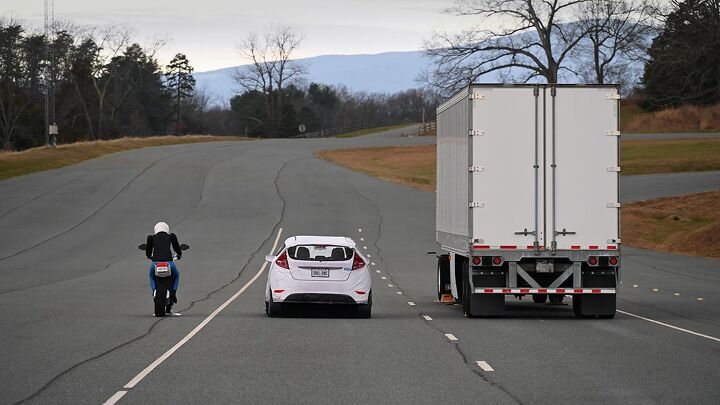


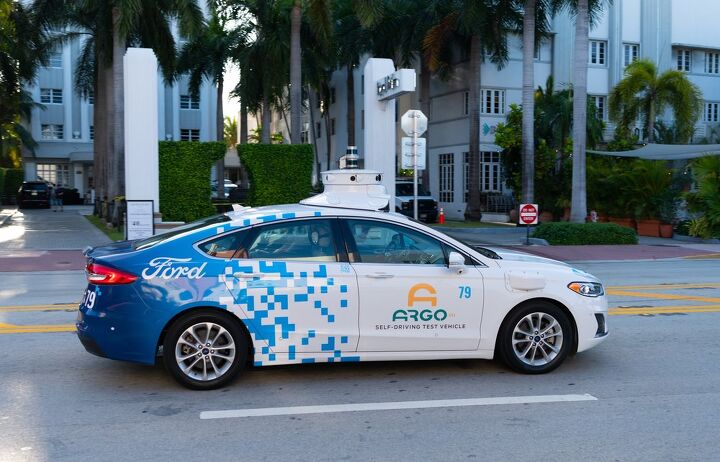
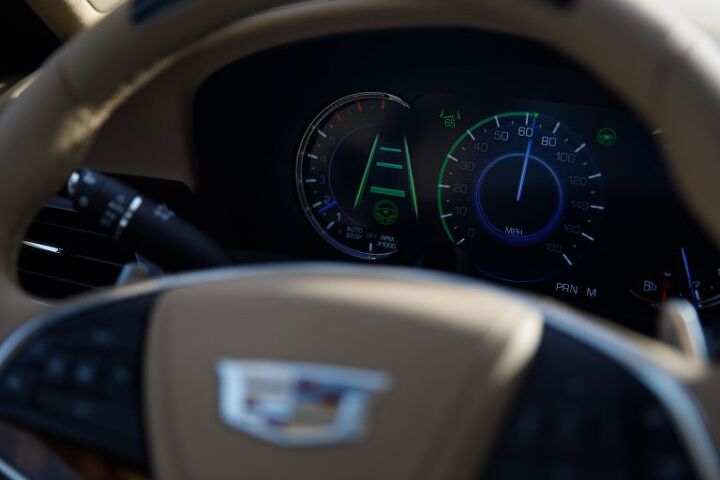



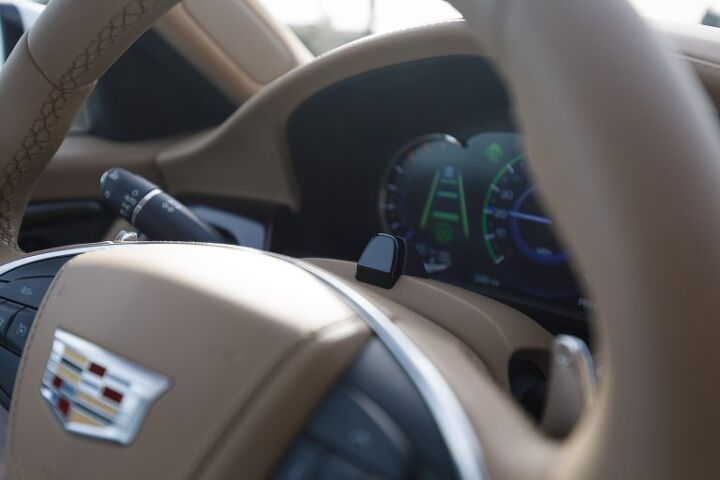
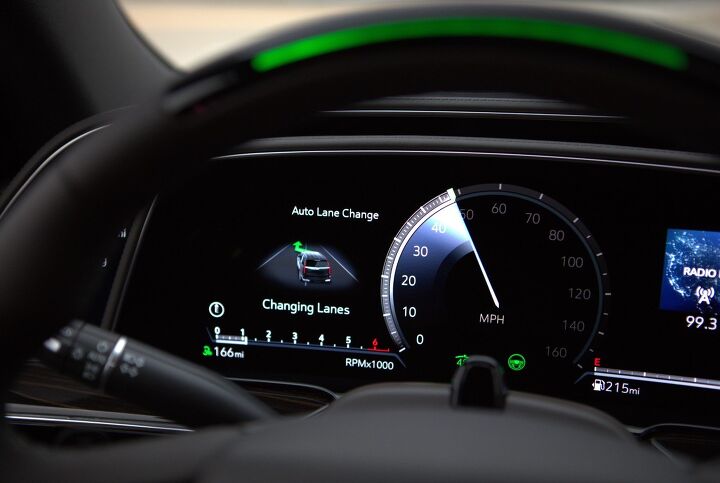


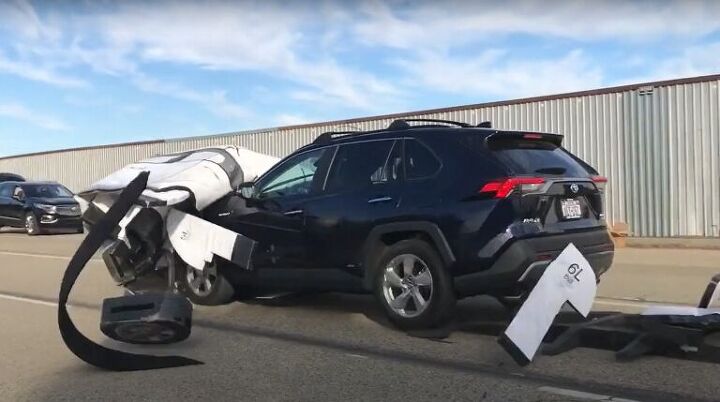












Recent Comments